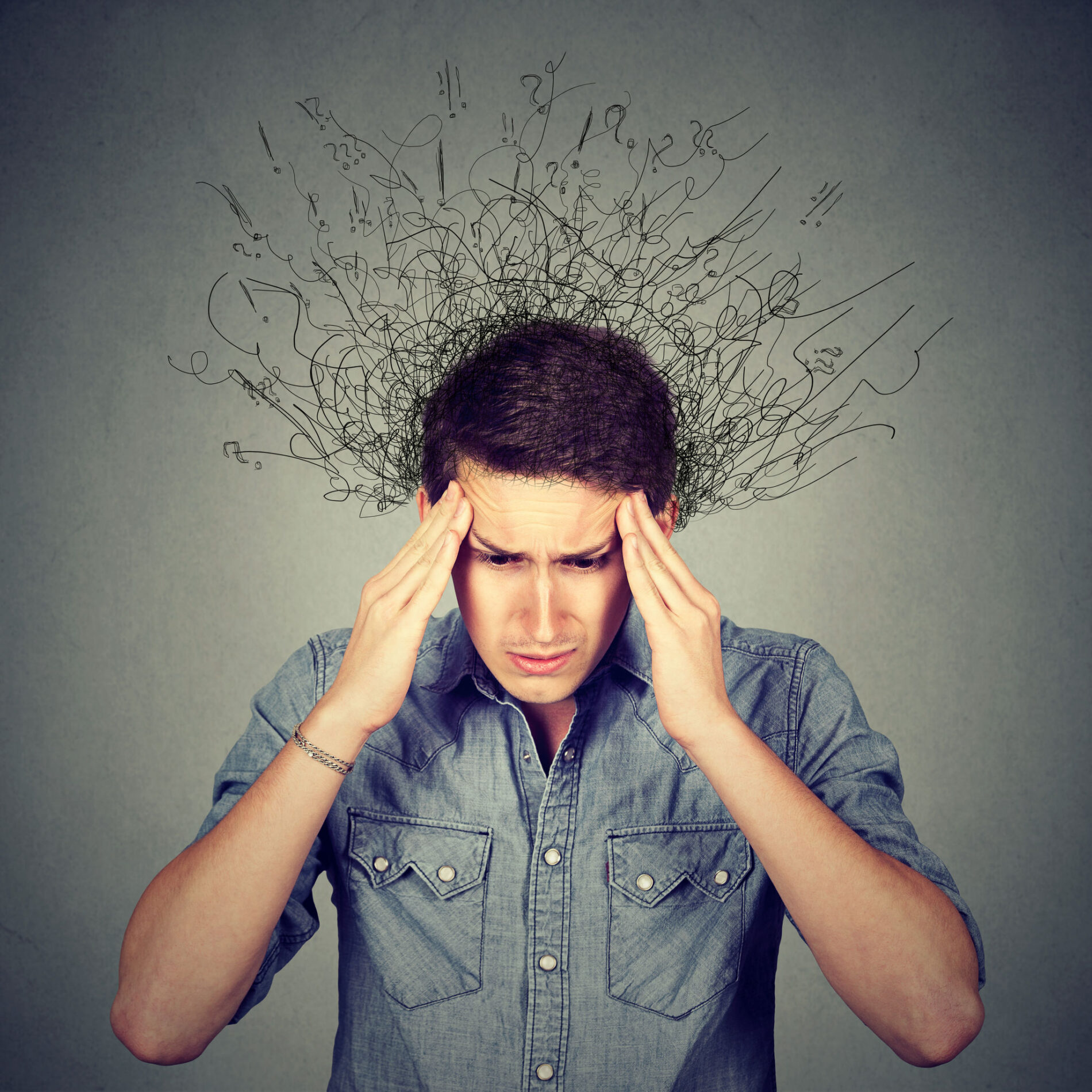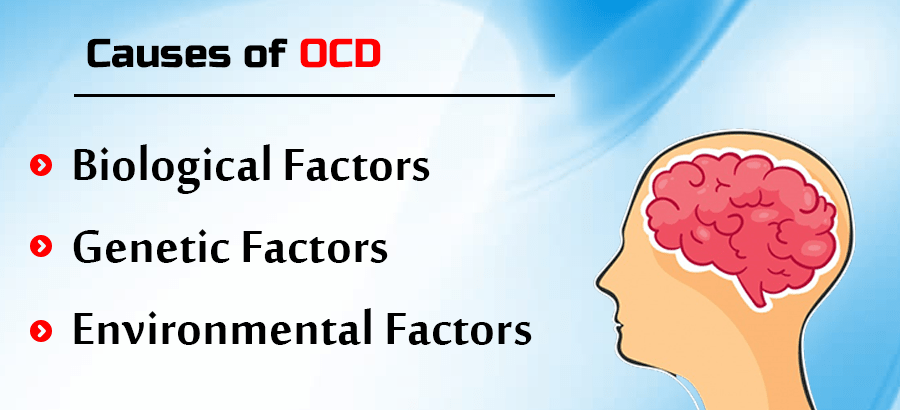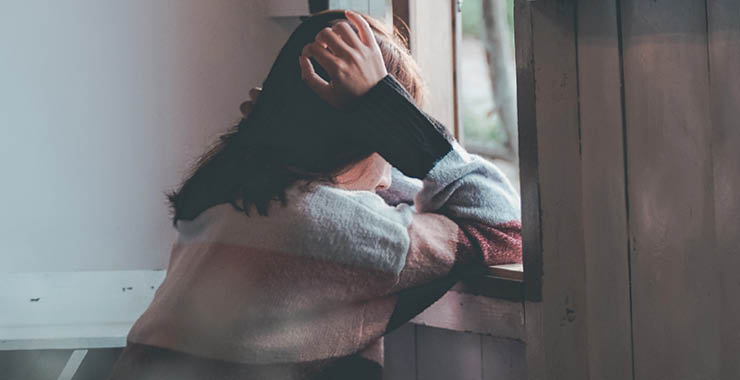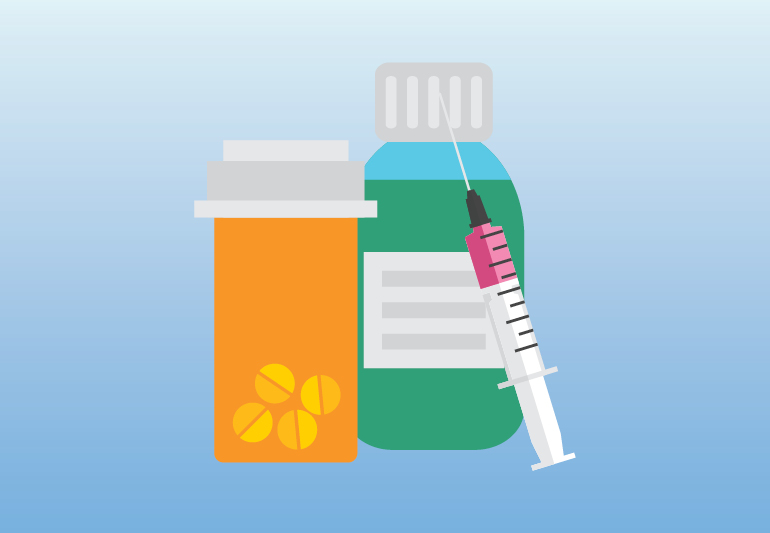Do you have a fear of socializing? If so, you are not alone. Social anxiety disorder is the most common type of anxiety disorder, and it affects millions of people around the world. People with social anxiety disorder often feel anxious and uncomfortable in social situations. They may worry about what others will think of them, or they may be afraid of being judged or ridiculed. In this blog post, we will discuss social OCD and how to overcome it.
Contents
What Does ” Social OCD” Mean?

Social OCD means having an intense fear of socializing. This can include anything from talking on the phone to attending parties. The main symptom is feeling anxious and stressed about socializing, which can lead to avoiding social situations altogether.
There are a few things that can trigger Social OCD. One is a past negative experience, such as being humiliated or rejected in front of others. Another is having low self-esteem or feeling like you’re not good enough. And finally, it could be due to genetics or family history. If someone in your family has OCD, you’re more likely to develop it yourself.
Also, Social OCD is often comorbid with other disorders, such as depression, anxiety, and substance abuse. This means that if you have Social OCD, you’re more likely to also suffer from one or more of these other conditions. It can also make it more difficult to treat.
Signs and Symptoms of Social OCD

There are many signs and symptoms of social OCD, but some of the most common ones include:
Avoiding Social Gatherings
When you have Social OCD, the thought of attending a social gathering can be incredibly anxiety-inducing. This may lead you to avoid events altogether or only go if you have to. Sometimes there also be many “what if” scenarios running through your head, such as “What if I embarrass myself?” or “What if everyone hates me?”.
Constantly Checking for Flaws
One of the most common symptoms of Social OCD is constantly checking for flaws. This can be anything from your physical appearance to your behavior. For example, you may check the mirror a million times before leaving the house to make sure you look presentable. Or, you might obsessively worry that you said something wrong during a conversation and replay it over and over again in your head.
Spending Too Much Time Preparing
If you have Social OCD, you may find yourself spending hours getting ready for an event, even if it’s just a coffee date with a friend. This is because you want everything to be perfect and you’re terrified of making a mistake. This can lead to a lot of anxiety and even panic attacks.
Having Extreme Anxiousness
Anxiety is a common symptom of Social OCD. This may manifest itself as nervousness, sweating, shaking, or an increased heart rate. You may also feel like you’re going to faint or vomit. In severe cases, you may even have a full-blown panic attack. It may also be difficult to breathe or speak.
Feeling Depressed
Social OCD can also lead to depression. This is because you may feel like you’re missing out on life by avoiding social situations. You may also feel isolated and alone. If you’re depressed, it’s important to seek help from a mental health professional. It may also be helpful to join a support group for people with Social OCD.
Constant Worrying
Another common symptom of Social OCD is constant worrying. This may be about anything from your appearance to what others think of you. You may also worry that you’re going to make a mistake or say something embarrassing. This can lead to a lot of stress and anxiety. One can also have difficulty sleeping and concentrating.
Constant Reassurance Seeking
If you have Social OCD, you may find yourself constantly seeking reassurance from others. This may be in the form of asking them if they look okay or if you said something stupid. You may also need constant reassurance that people still like you and that they’re not talking about you behind your back.
Feeling Numb
In some cases, people with Social OCD may feel numb or disconnected from the world. This is because they’re so focused on their anxiety and avoiding social situations. This can lead to a loss of interest in activities that you used to enjoy, such as hobbies or spending time with friends and family.
These are some of the signs of Social OCD. If you think you may have this disorder, it’s important to seek help from a mental health professional. They can diagnose you and provide you with the appropriate treatment.
Causes of Social OCD

Other than signs and symptoms, what causes social anxiety disorder or social OCD? It is not clear what exactly causes this mental health condition. However, like most mental disorders, it is likely caused by a combination of biological and environmental factors.
Some of these causes are:
Genetics
Genetics is one of the main causes of social OCD. In this case, it can be passed down from your parents or other relatives. If someone in your family has a social anxiety disorder, you’re more likely to develop it as well. There may also be many genes that contribute to this disorder. Sometimes there may be also a history of anxiety or depression in the family.
Brain Structure
Another cause of social OCD is the structure of your brain. In people with this disorder, the amygdala may be more active. This is the part of the brain that controls fear and anxiety. People with a social anxiety disorder may also have a higher level of activity in the prefrontal cortex. This part of the brain controls thinking and planning.
Through brain imaging studies, researchers have found that the brains of people with social anxiety disorder look different than those of people without the disorder.
Environmental Factors
Environmental factors are also thought to play a role in the development of social OCD. For example, if you experienced trauma or bullying in childhood, you may be more likely to develop this disorder. This is because these experiences can cause you to feel anxious and scared in social situations.
Trauma
When someone experiences a traumatic event, it can cause them to feel scared and alone. This can lead to social anxiety and avoidance. Some examples of trauma include:
-Abuse (physical, sexual, emotional, or verbal)
-Natural disasters (such as storms, floods, or earthquakes)
-Violent events (such as shootings or mugging)
-Car accidents
Situational Factors
There are also situational factors that can trigger social anxiety. For example, you may be more likely to feel anxious in situations where you’re being watched or evaluated by others. This could be during a job interview, public speaking, or performing on stage.
Some people with social anxiety may only feel anxious in certain situations. Others may feel anxious in most social situations. They may also feel anxious in situations where they’re not the center of attention.
Cognitive Factors
Cognitive factors also play a role in social anxiety. This means that the way you think can affect how you feel. For example, if you have negative thoughts about yourself, you’re more likely to feel anxious in social situations. You may believe that people are judging you or that you’re not good enough. These negative thoughts can make your anxiety worse.
Mental Health Conditions
Certain mental health conditions can also increase your risk of social anxiety. For example, if you have depression or another anxiety disorder, you’re more likely to develop social anxiety as well. It can also be because of many other factors Sometimes social OCD also occurs with other mental disorders such as:
-Attention deficit hyperactivity disorder (ADHD)
-Anxiety or depression
Impacts of Social OCD

The impacts of social OCD can be significant. They may include:
Isolation
One of the main impacts of social OCD is isolation. This is because people with this disorder often avoid social situations. They may not go to work or school. They may also avoid spending time with friends and family. This can lead to feelings of loneliness and depression. Sometimes there can also be many other problems.
Anxiety
People with social OCD often feel very anxious in social situations. This can make it hard to concentrate or think clearly. It may also make you feel dizzy, lightheaded, or like you’re going to faint. Sometimes there can also be many other symptoms.
Depression
Social OCD can also lead to depression. This is because of the isolation and anxiety that people with this disorder often feel. Depression can make it hard to enjoy your life or do the things you love. It can also make it hard to work or go to school. It may also lead to thoughts of suicide.
Self-Harm
Self-harm is also common in people with social OCD. This is because of the anxiety and isolation that they often feel. People may self-harm to try to relieve their anxiety or make themselves feel better. Self-harm can include cutting, burning, or hitting yourself. It can also include drug and alcohol abuse.
Impacts on Relationships
Social OCD can also impact your relationships. It may be hard to maintain friendships or intimate relationships. This is because you may avoid social situations. You may also have a hard time trusting people. If you do have friends, you may only see them in certain situations. You may also only talk to them about certain topics.
Impacts on School or Work
Social OCD can also impact your school or work life. It may be hard to concentrate in class or at work. You may also have a hard time participating in group projects. This is because you may be too anxious to speak up. You may also avoid social situations.
Impact on Daily Life
Social OCD can also impact your daily life. It may be hard to run errands or go out in public. You may also have a hard time using public transportation. This is because you may be anxious about being in close quarters with other people. You may also worry about being in a place where there are no exits. It can also be hard to make phone calls or talk to people you don’t know.
Diagnosis of Social OCD
The diagnosis of social OCD can be tricky because it can be difficult to draw the line between normal social anxiety and social OCD. Many people with social anxiety also have some features of OCD, such as perfectionism or excessive worrying. However, people with social OCD typically have more severe symptoms that significantly interfere with their ability to function in daily life.
To make a diagnosis of social OCD, a mental health professional will likely conduct a clinical interview and administer a questionnaire or self-test specifically designed to assess symptoms of OCD. It is important to note that there is no single test that can definitively diagnose social OCD. Rather, the diagnosis is based on a comprehensive assessment of an individual’s symptoms and how they are impacting his or her life.
One should always consult with a mental health professional to receive an accurate diagnosis. However, it may be helpful to read about the symptoms of social OCD and take an OCD self-test to get a better sense of whether you may be experiencing this disorder.
However, one should only use self-tests and questionnaires as a starting point for further discussion with a mental health professional. Only a trained professional can make a diagnosis of social OCD.
If you think you may have social OCD, it is important to seek professional help.
Treatment of Social OCD

The treatment of social OCD can be difficult, as it typically involves exposure to the very things that trigger anxiety and fear. However, treatment is possible and there are many resources available to help those suffering from social OCD.
There are two many types of treatment available for social OCD. Some of these are:
Medication
Medications are often used to help treat social OCD. The most common type of medication used is a selective serotonin reuptake inhibitor (SSRI). SSRIs are a type of antidepressant that can help to reduce the symptoms of social anxiety and OCD.
These medications are typically taken daily and can take several weeks to reach their full effect. It is important to work with a mental health professional to determine if medication is right for you and, if so, which type of medication would be most effective. Sometimes these medications are used in combination with therapy.
Therapy
Therapy is often an effective treatment for social OCD. The most common type of therapy used to treat social OCD is exposure and response prevention (ERP) therapy. ERP is a type of cognitive-behavioral therapy that involves gradually exposing oneself to the things that trigger anxiety and fear while learning to resist the urge to engage in compulsive behaviors.
Cognitive Behavioral Therapy
Cogntive behavioral therapy (CBT) is a type of psychotherapy that helps people to identify and challenge negative thoughts and beliefs. CBT can be used to help people with social OCD to identify and change the negative thoughts and beliefs that are contributing to their anxiety.
In this therapy, there are different techniques that are used to help you, such as:
Systematic desensitization- This is when you are slowly exposed to the thing that you fear in a safe and controlled environment.
Cognitive restructuring- This is when you learn how to identify and challenge negative thoughts and beliefs.
Relaxation training- This is when you learn how to relax your body and mind in response to anxiety-provoking situations.
Social skills training- This is when you learn how to interact with others in a more effective way.
Exposure and Response Prevention
ERP is a type of cognitive-behavioral therapy that’s specifically designed to help people with OCD. The goal of ERP is to expose you to the things that trigger your OCD, without allowing you to engage in your compulsions. Compulsions are the behaviors or mental acts that you perform in order to try to relieve your anxiety.
For example, let’s say you have a fear of contamination. Your compulsions might include excessive hand-washing, cleaning surfaces over and over, or avoiding places where germs might be present.
With ERP, you would deliberately expose yourself to situations that trigger your fear of contamination (like shaking hands or using a public restroom), without engaging in any compulsions (like washing your hands).
Family Therapy
The family is an important support system for individuals with social anxiety disorder. In some cases, family therapy may be recommended to help the person cope with their condition. Also, family therapy can help to educate the family about social anxiety disorder and how they can best support their loved one. Also, it can help to identify and address any negative family dynamics that may be contributing to the person’s social anxiety.
Self-Help Strategies
In addition to professional treatment, there are also many self-help strategies that can be used to manage social OCD. Some of these self-help strategies include:
Meditation
Meditation is one of the most effective ways to reduce stress and anxiety. There are many different types of meditation, but they all involve focusing your attention on something (like your breath) while letting other thoughts come and go without judgment.
Mindfulness
Mindfulness is a form of meditation that involves paying attention to the present moment, without judgment. Mindfulness can help you to become more aware of your thoughts and feelings, and learn how to respond to them in a more constructive way.
Relaxation Techniques
Relaxation techniques are another effective way to reduce stress and anxiety. Some relaxation techniques that can be used include deep breathing, progressive muscle relaxation, and guided imagery.
Exercise
Regular exercise is one of the best things you can do for your mental health. Exercise can help to reduce stress and anxiety, improve mood, and increase energy levels. It can also help to improve sleep quality.
Eating Good Food
One of the best things you can do for your mental health is to eat a healthy, balanced diet. Eating nutritious foods can help to reduce stress and improve mood. Some of the best foods for mental health include omega-rich fish, dark leafy greens, berries, nuts, and seeds.
Socializing with Friends
Spending time with friends and loved ones is one of the best ways to reduce stress and anxiety. Socializing can also help to improve mood and increase energy levels. If you’re feeling anxious about socializing, start by spending time with just one or two close friends. You can also try joining a club or group that meets regularly.
Getting Good Sleep
Another important self-care strategy is to make sure you’re getting enough sleep. Most adults need between seven and eight hours of sleep per night. If you’re not getting enough sleep, it can worsen symptoms of anxiety and depression.
Support Groups
One of the best things you can do for your mental health is to join a support group. Support groups provide a safe space for people to share their experiences and connect with others who understand what they’re going through. There are many different types of support groups, including online groups and in-person groups.
There are many online and offline support groups for people with social OCD. These groups provide a safe and supportive environment for people to share their experiences and connect with others who understand what they are going through.
How To Help Someone With Social OCD?
Helping someone with social OCD can be difficult because they may not want to talk about their fears or may not want to socialize at all. Here are some tips on how you can help:
Provide Support
One of the best things you can do is to provide support and understanding. Let the person know that you are there for them and that you understand what they are going through. Also, try to be patient and understand that it may take time for the person to open up.
Encourage Treatment
If the person is not receiving treatment, encourage them to seek help from a mental health professional. You can also offer to go with them to their appointments or help them find a therapist.
Be Supportive
Another important way you can help is by being supportive. This includes things like listening to the person, providing encouragement, and helping them to avoid any triggering situations. It’s also important to respect the person’s boundaries and not push them to do anything they’re not comfortable with.
Encourage Them To Seek Help
If the person is struggling to cope with their social OCD, encourage them to seek professional help. This can be a difficult conversation to have, but it’s important to let the person know that there is help available and that they don’t have to suffer alone.
Offer To Go With Them
If the person is hesitant to socialize, offer to go with them. This can help to ease their anxiety and make socializing feel more manageable. There may also be many other people in the group who are struggling with social anxiety, so you can provide support to each other.
Be Patient
Recovery from social OCD takes time and there will be setbacks. It’s important to be patient and understand that the person is doing the best they can. Also, try to provide support and encouragement throughout the process.
Conclusion
Social OCD is a real and debilitating condition, but it is also treatable. This co-existence of good news and bad news can be frustrating, but it is important to remember that there is hope. If you or someone you know suffers from Social OCD, please reach out for help. There are many resources available, and with treatment, people with this disorder can lead fulfilling lives.
It may also be helpful to read about other people’s experiences with Social OCD. Hearing about how others have coped with and overcome their fear of socializing can be inspiring and provide valuable insights. There are many books, articles, and websites available on this topic.
Finally, remember that you are not alone. Millions of people suffer from Social OCD and many have found ways to live happy and fulfilling lives in spite of it. Do not hesitate to reach out for help if you need it. There is no shame in seeking treatment for a mental disorder, and with the right support, you can overcome Social OCD.
If you’re struggling with mental health problems, know that you’re not alone. MantraCare is here to help you with these mental health disorders. We offer group therapy, self-help strategies, and professional help. Contact us today to learn more about how we can help you! Helping someone with these disorders can be difficult, but it is important to encourage professional treatment, listen and be supportive, and encourage healthy coping mechanisms. MantraCare is here to help you every step of the way. You can also book a therapy or download our free Android or iOS app.


